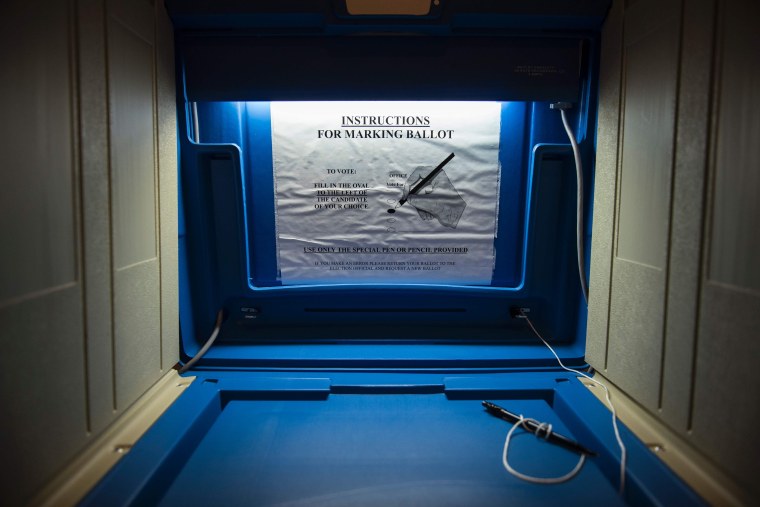There are pundits who genuinely believe 2016 is a "change" election, with much, and perhaps even most, of the electorate eager for a radical shift in direction. A couple of weeks ago, ABC News' Matthew Dowd, a former chief strategist for George W. Bush, even offered some proof to bolster the thesis: "[T]his is a change election when 70% of country believes we are off on wrong track."The right-track/wrong-track metric has its fans, and it's true that when the American mainstream is asked, voters by wide margins express dissatisfaction with the nation's current course.At this point, it may be tempting to think Dowd's point is correct. After all, if more than two-thirds of the country believes we're on the wrong track, there must be an enormous public appetite for a dramatic departure from the status quo, right?Not necessarily.Note, for example, that right-track/wrong-track polling has been relatively consistent for many years -- Americans have thought the country is headed in the wrong direction for quite a while -- and it's offered little guidance on election outcomes.And that's because the right-track/wrong-track question is inherently vague. If a poll respondent is unsatisfied with the country's direction, is he/she a conservative who disapproves of President Obama or a liberal who opposes the Republican Congress? Or perhaps an independent who's outraged by the rise of Donald Trump as a competitive presidential hopeful?We have no idea what kind of "change" that voter wants and the survey question leaves his/her motivations ambiguous.The new Bloomberg Politics poll sheds some additional light on this. By a greater than two-to-one margin, respondents agreed that the country is on the wrong track. If Dowd's thesis is correct, we should therefore expect the rest of the poll to point to a strong public desire for a sharp national turn.Except it doesn't. Hillary Clinton has a fairly comfortable lead in the poll; President Obama's approval rating is up to 55%; nearly half the country believes it would be worse off under a Trump administration; and only 28% of Americans believe they're worse off now than before Obama's presidency began.This isn't a recipe for a "change" election. It's the opposite.
The limits of the right-track/wrong-track metric
The latest polling doesn't suggest we're experiencing a "change" election. The evidence actually points in the opposite direction.
